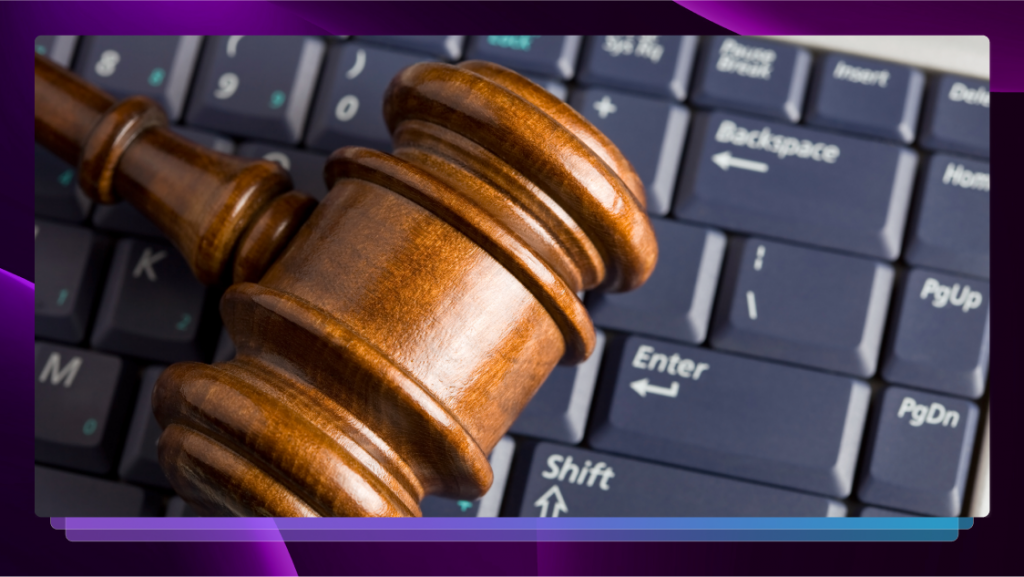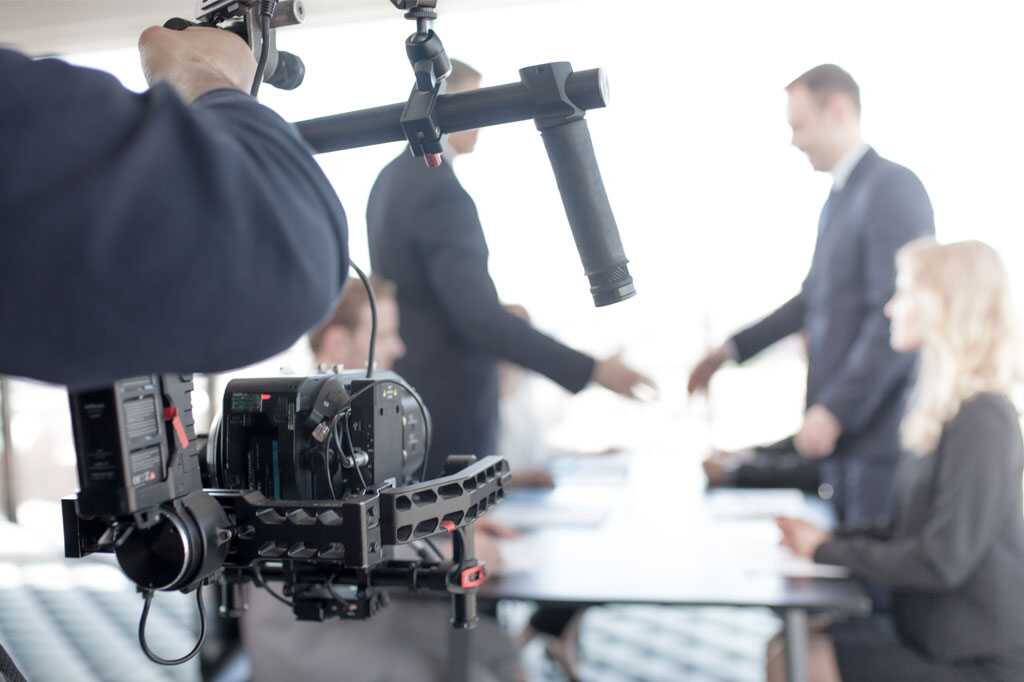Can legal video depositions replace live courtroom testimony?
The Significance of Legal Video Clip Depositions in Modern Legal Providers: What You Must Know
Lawful video depositions have actually ended up being important in today's legal landscape. They offer a multidimensional view of witness testaments that conventional records just can not match. By capturing both spoken and non-verbal communication, these depositions boost the general understanding of a witness's trustworthiness. The effectiveness of video clip depositions hinges on numerous elements, consisting of compliance with lawful standards and ideal methods. Checking out these components discloses their true value in contemporary lawful services
What Are Lawful Video Depositions?
Lawful video depositions offer as an important tool in the litigation process. They entail recording witness statements in a video style, recording both spoken and non-verbal interaction. This method enables lawyers to record the attitude, expressions, and reactions of witnesses, supplying a richer context for the statement. Usually conducted in a regulated setting, these depositions are led by lawyers that ask inquiries while a court press reporter records the discussion. The resulting video can be critical for trial preparation, as it enables attorneys to examine the credibility of witnesses and refine their techniques. In addition, lawful video clip depositions can be used in various lawful contexts, ranging from civil disputes to criminal cases. The aesthetic and auditory components of video clip depositions enhance the presentation of evidence, making it a vital element in the contemporary legal landscape. On the whole, they add substantially to the performance and performance of lawful procedures.

Advantages of Video Depositions Over Traditional Methods
Video clip depositions supply numerous benefits contrasted to conventional approaches of taking witness testaments. One considerable benefit is the ability to capture both audio and aesthetic components, giving a much more complete record of the witness's statements. This twin style improves clarity and permits attorneys to reference certain nuances throughout test preparation. In addition, video clip depositions help with remote participation, making it less complicated for witnesses that may be not available for in-person looks due to geographical restrictions or health issues.Moreover, video clip depositions can accelerate the overall deposition process, reducing the moment and expenses connected with travel and logistics. They likewise enhance access, as taped depositions can be easily shared among legal teams and referenced at any moment. This comfort adds to much better instance administration and prep work. In general, video depositions represent a contemporary, reliable approach to collecting witness testaments, aligning with the advancing requirements of the lawful career.
The Function of Body Movement and Tone in Testimonies

In lawful video depositions, body language and tone play crucial duties in sharing a witness's trustworthiness and reliability. Nonverbal cues can offer understandings right into a witness's psychological state, affecting how their testimony is viewed. Recognizing the influence of these aspects is crucial for lawyers and jurors alike when assessing the integrity of a testimony.
Nonverbal Communication Insights
While spoken interaction is commonly stressed in lawful testaments, nonverbal cues such as body movement and tone play a crucial duty in sharing credibility and emotion. Onlookers of depositions might keep in mind that a witness's pose, gestures, and facial expressions can significantly influence perceptions of reliability. Constant eye call may signal self-confidence, while staying clear of look might suggest deceit or discomfort. Similarly, the intonation-- its volume, rate, and pitch-- can pass on feelings of sincerity or unpredictability. Attorneys must be attuned to these nonverbal signals, as they typically provide essential context that complements talked words. Understanding these nuances can improve the performance of depositions and influence the outcome of lawful proceedings.
Emotional Tone Impact
The psychological tone shared throughout legal testimonies significantly influences exactly how a witness is regarded. Body language, vocal inflections, and faces play important roles in forming the narrative of a testimony. A witness showing self-confidence with constant eye contact and a calm tone can impart a feeling of integrity and interaction. Alternatively, indications of anxiety, such as fidgeting or an unstable voice, might cause uncertainty concerning their account. The nuances of psychological expression can influence the interpretation of truths, making it important for lawful experts to identify these hints. In video depositions, the auditory and visual parts combine, emphasizing the relevance of emotional tone in conveying genuineness and truthfulness within the lawful process.
Reputation and Credibility
An essential factor in establishing reputation and credibility during testimonies lies in the witness's body movement and tone of voice. Onlookers commonly rely upon non-verbal cues-- such as eye contact, posture, and gestures-- to assess a witness's sincerity. For circumstances, a witness who preserves eye call and shows open body movement may be regarded as more straightforward and reliable than one who prevents eye call or shows up shut off. Additionally, tone of voice plays an essential function; a constant, calm tone can reinforce the credibility of the testimony, while variations in pitch or quantity might increase uncertainties. Inevitably, the mix of body language and vocal tone greatly affects just how a witness's declarations are obtained and analyzed in a legal context.
Best Practices for Conducting Video Depositions
Conducting video depositions calls for cautious preparation and execution to assure a reliable and clear presentation of testament. It is essential to select a quiet, well-lit place to decrease distractions and protected optimum video clip quality. The tools must be checked in breakthrough, including cams, microphones, and illumination, to avoid technical concerns during the deposition.Next, events included should assess the layout and procedures ahead of time, ensuring that every person recognizes their functions. The deponent must be oriented on the procedure, consisting of exactly how to react plainly and concisely.Additionally, keeping an expert temperament throughout the session is important. This includes avoiding from talking over one another and validating that all questions are routed suitably. Ultimately, it is vital to tape-record the deposition in a style that enables simple playback and review, maintaining the honesty of the statement for future use.
Legal Factors To Consider and Conformity Issues
Exactly how do legal factors to consider and conformity concerns impact the effectiveness of video depositions? Attorneys need to navigate an intricate landscape of laws, guaranteeing that video depositions abide by jurisdictional policies and standards. Compliance with regulations worrying personal privacy, consent, and tape-recording approaches is necessary. For example, obtaining specific authorization from all events included is required to avoid lawful repercussions.Additionally, the admissibility of video clip evidence in court my latest blog post can depend upon conformity with step-by-step needs. Ensuring that the tools utilized meets technological requirements is also crucial, as bad quality can undermine the deposition's reliability.Moreover, lawyers need to be conscious of any details state legislations that control video depositions, as these can differ substantially. Failing to resolve these factors to consider can not only jeopardize the honesty of the deposition yet also influence the overall instance approach, inevitably impacting the client's lawful results.
Just How Video Depositions Effect Jury Understanding
While video clip depositions can work as effective tools in legal process, their influence on jury assumption is significant. The aesthetic and acoustic components of video recordings provide jurors with an extra extensive understanding of witness disposition, reliability, and psychological responses. This multimedia method can boost the jurors' ability to evaluate the dependability of testament contrasted to typical text-based transcripts.Moreover, video depositions enable jurors to observe body movement, intonation, and face expressions, all of which can impact their interpretation of the witness's statements. The visibility of a witness on screen can humanize them, cultivating compassion and connection, which might guide jurors' point of views. Conversely, a witness who appears unreliable or incredibly elusive on video may cause adverse assumptions that affect a court's choice. Ultimately, the vibrant nature of video clip depositions plays a vital role in shaping exactly how jurors analyze proof and reach their read decisions.
The Future of Video Depositions in Legal Practice
As developments in innovation continue to improve the legal landscape, the future of video depositions is poised for considerable development. Developments such as synthetic intelligence, virtual reality, and enhanced video conferencing tools are expected to improve the look here deposition process and boost accessibility. Attorneys may make use of AI-driven analytics to analyze witness reliability and instance stamina a lot more effectively.Moreover, the assimilation of online truth might permit juries to experience immersive simulations of depositions, providing much deeper context and understanding. Additionally, the fad toward remote depositions is likely to linger, using greater flexibility for lawyers and customers alike.As remote work becomes increasingly normalized, video clip depositions will likely become basic technique, reducing prices and time constraints connected with conventional approaches. In general, these technical improvements guarantee to improve the efficiency, performance, and accessibility of video clip depositions in legal technique, ultimately changing exactly how attorneys plan for test.
Often Asked Concerns
Just How Much Do Lawful Video Depositions Typically Expense?

Can Video Depositions Be Utilized in Any Type Of Kind of Instance?
Video clip depositions can be used in various kinds of instances, including civil, criminal, and household regulation. Their adaptability allows attorneys to existing witness statements successfully, adapting to the particular demands of various legal situations.
What Equipment Is Needed for a Video Clip Deposition?
To perform a video clip deposition, important devices consists of a top notch camera, microphone, lighting, and a reliable recording tool. Additionally, a computer with modifying software application might be needed for post-production and formatting the final video clip.
How much time Does a Typical Video Clip Deposition Last?
A normal video clip deposition lasts between 2 to 4 hours, relying on the intricacy of the instance and the number of concerns positioned. Prolonged sessions may occur, but breaks are usually incorporated for participant convenience.

Are Video Clip Depositions Admissible in Court?
Video clip depositions are typically admissible in court, given they stick to legal standards and regulations of proof. Their usage improves clearness and preserves witness testimony, assisting in the judicial procedure throughout hearings and trials. Lawful video clip depositions have ended up being necessary in today's lawful landscape. Furthermore, legal video depositions can be made use of in different legal contexts, ranging from civil conflicts to criminal cases. Furthermore, video depositions promote remote participation, making it simpler for witnesses who may be unavailable for in-person appearances due to geographical restrictions or health and wellness issues.Moreover, video depositions can speed up the overall deposition procedure, reducing the time and expenses associated with traveling and logistics. Making sure that the equipment made use of satisfies technical standards is additionally essential, as poor top quality can undermine the deposition's reliability.Moreover, attorneys need to be aware of any type of certain state regulations that govern video clip depositions, as these can vary substantially. Furthermore, the fad towards remote depositions is likely to continue, using better versatility for customers and lawyers alike.As remote work ends up being increasingly normalized, video clip depositions will likely become typical practice, minimizing costs and time restrictions linked with conventional approaches.